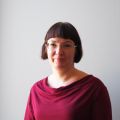The evaluation of the state and renewal of higher education pedagogy
The final seminar of the Evaluation of the state and renewal of higher education pedagogy was held on 17.8.2023.
Checklists for developing higher education pedagogy at different systemic levels
According to National education evaluation plan (2020-2022), the evaluation of the state and renewal of higher education pedagogy will be carried out in 2022–2023. The evaluation will produce information about the current state of higher education pedagogy, for instance the pedagogical policies and operating models of higher education institutions, the role of digitalisation in teaching and learning, the internal activities for developing teaching and education, and cooperation between higher education institutions aiming at pedagogical development. Information will also be produced about supporting teachers’ pedagogical competence and related incentives. The evaluation will support higher education institutions in developing and renewing higher education pedagogy. The Vision for higher education and research in 2030 and the development projects for competence in higher education pedagogy of the Ministry of Education and Culture form a background for the evaluation.
The members of the planning and evaluation team are:
- Professor Auli Toom, University of Helsinki (chair)
- Project manager Tuula Heide, Digivision 2030 project
- Student Ville Jäppinen, University of Tampere
- Director Asko Karjalainen, Oulu University of Applied Sciences
- Senior lecturer Kimmo Mäki, Haaga-Helia university of applied sciences
- Professor Päivi Tynjälä, University of Jyväskylä
Evaluation target group and evaluation questions
The target group of the evaluation comprises all Finnish higher education institutions.
The evaluation of the state and reform of higher education pedagogy focuses on the following questions:
- What is the current state of higher education pedagogy in Finnish higher education institutions?
- How do higher education institutions update, support and develop higher education pedagogy?
- What types of pedagogical policies and operating models do higher education institutions have, what roles does digitalisation play in teaching and learning, how do higher education institutions develop and support teaching and education internally, and what type of cooperation aiming at pedagogical development do higher education institutions engage in?
- How do higher education institutions support and encourage teachers in developing their pedagogical competence?
Data collection methods and phases
Several methods are used to collect the evaluation data. The higher education institutions participate in the data production using different methods, and information is generated in interaction with higher education institutions. The data are collected in three stages, in which the following phase complements the evaluation data obtained in previous ones.
The first phase focused on obtaining a big picture of the education offered and activities related to higher education pedagogy as well as the development of this education and activities. The data collection is partly carried out together with the Evaluation of Government’s key projects for higher education (2017–2022). In this phase, key data collection methods are:
- hearings
- a background questionnaire for higher education institutions
- surveys addressed to different systemic levels:
In the second phase, detail will be added to the information obtained through the surveys:
- focus group interviews for selected target groups, such as Vice Rectors for Education
- workshops for teaching staff and students.
The third phase focused on development: the aim is to crystallise strengths and areas of development in proportion to the evaluation themes and, based on the findings, formulate development recommendations. The third phase aims at painting the big picture of the national state of higher education pedagogy. The most important method in the third phase is a development seminar, which will be attended by representatives of higher education institutions, students and working life outside higher education, and possibly other stakeholders.
More information

